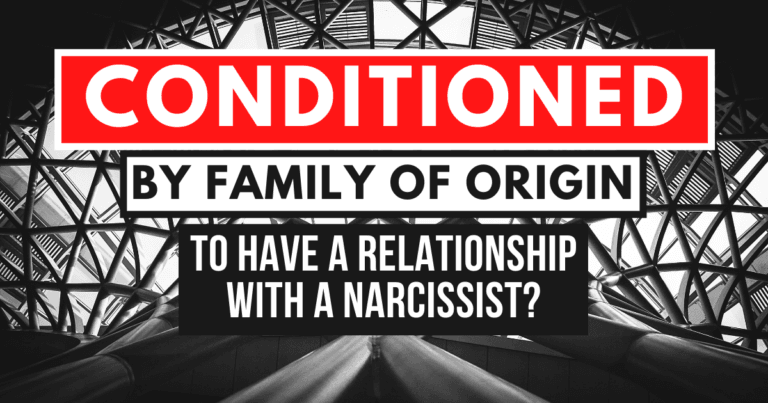Are you Stuck in Analysis Paralysis? 12 Ways to Detect and Stop Your Mind from Circulating with Ruminating Thoughts
If you have caught yourself thinking about the same topic over and over again for way too long, this article is for you.
We are going to address ruminating thoughts, circulating thoughts especially after a traumatic experience, tips and how to effectively manage and/or stop symptoms, and the connection to narcissistic abuse.
We have a lot to cover, so let’s get to it.
Related: Did you know we have a podcast? Listen here to overcome and heal from narcissistic abuse today.
What is Analysis Paralysis?
Analysis paralysis refers to a state of overthinking or overanalyzing a situation to the point where decision-making becomes difficult or even impossible. It often leads to a sense of being stuck and unable to move forward due to the fear of making the wrong choice.
This concept can indeed be related to trauma responses, particularly when considering the following factors:
Hypervigilance: Trauma survivors might develop a heightened sense of vigilance as a way to protect themselves from potential harm. This can translate into overanalyzing situations to ensure safety, even in situations where the level of analysis is unnecessary.
Fear of Repeating Trauma: Trauma can lead to a deep fear of repeating the same painful experiences. As a result, individuals might overanalyze situations to prevent any possibility of retraumatization, which can contribute to analysis paralysis.
Loss of Control: Trauma often involves a feeling of powerlessness and loss of control. To compensate, individuals may attempt to gain control over their lives through excessive analysis. However, this can backfire, leading to a feeling of being overwhelmed by too many choices or possibilities.
Cognitive Load: Overthinking and analyzing require cognitive resources. When dealing with the effects of trauma, an individual’s cognitive load might already be elevated due to stress, anxiety, or other trauma-related symptoms. This can make decision-making even more challenging and lead to analysis paralysis.
Avoidance Mechanism: Delving into deep analysis can serve as a way to avoid confronting underlying emotions or memories associated with trauma. It becomes a coping mechanism to distract from distressing thoughts or feelings.
Perfectionism: Trauma can lead to a need for control and perfectionism as a way to manage the uncertainty and chaos experienced during the traumatic event. This perfectionism can manifest in analysis paralysis, where individuals feel they need to make the “perfect” decision.
Lack of Trust: Trauma can erode one’s ability to trust oneself and others. This lack of trust can contribute to overthinking as individuals struggle to rely on their judgment and fear the consequences of making a wrong choice.
It’s important to note that analysis paralysis is not always a trauma response; it can also result from other factors like personality traits, anxiety disorders, or a lack of confidence in decision-making.
If you find yourself frequently stuck in analysis paralysis, it can be helpful to seek support from a therapist or counselor who can help you address underlying issues, develop coping strategies, and work towards more balanced decision-making.
How to Tell if You are Stuck in Analysis Paralysis?
Being stuck in analysis paralysis can be frustrating and can hinder your decision-making process.
Here are some signs to help you recognize if you’re experiencing analysis paralysis:
Constant Overthinking: You find yourself thinking about the decision excessively, going over the same options and scenarios repeatedly without reaching a conclusion.
Procrastination: You delay making a decision because you’re afraid of making the wrong choice, even if the decision is relatively minor.
Feeling Overwhelmed: The more you think about the decision, the more overwhelmed you become by the potential outcomes and variables involved.
Inability to Move Forward: You’re unable to move forward with your plans or projects because you’re fixated on making a decision first.
Fear of Regret: You’re afraid that no matter what choice you make, you’ll regret it, so you keep analyzing to prevent future regret.
Gathering Excessive Information: You keep researching or seeking advice, often beyond what’s necessary, as a way to reassure yourself that you’re making the right choice.
Indecisiveness: Even after collecting ample information, you still can’t commit to a decision and may change your mind multiple times.
Physical and Emotional Stress: Overthinking the decision leads to heightened stress, anxiety, and sometimes even physical symptoms like headaches or sleep disturbances.
Lack of Progress: Your inability to make a decision prevents you from progressing in your personal or professional life.
Avoidance: You may avoid making decisions altogether to prevent the discomfort associated with potential outcomes.
Loss of Perspective: You lose sight of the bigger picture and the original goals, focusing solely on the decision itself.
Perfectionism: You want the decision to be perfect and worry excessively about making a mistake.
If you recognize these signs in your behavior, it’s a clear indicator that you might be experiencing analysis paralysis. To overcome this state, it’s important to acknowledge the issue and take steps to break the cycle.
Start by setting time limits for decision-making, prioritizing factors that truly matter, and gradually practicing making smaller decisions to build your confidence. Seeking support from friends, family, or a mental health professional can also provide guidance and strategies for overcoming analysis paralysis.
Is It Connected to Narcissistic Abuse Trauma?
Narcissistic abuse is a pattern of manipulative and controlling behaviors employed by individuals with narcissistic personality traits or narcissistic personality disorder. These behaviors can have a profound impact on the victims’ mental and emotional well-being, often leading to a range of psychological effects, including analysis paralysis.
Here’s how the two concepts are connected:
Gaslighting and Doubt: Gaslighting is a tactic commonly used in narcissistic abuse where the abuser manipulates the victim’s perception of reality, causing them to doubt their own thoughts, feelings, and memories. This constant manipulation can lead to analysis paralysis, as the victim becomes unsure of their ability to make decisions or trust their judgment.
Hyper-Vigilance: Victims of narcissistic abuse often develop hyper-vigilance as a survival mechanism. They become excessively alert to the abuser’s moods and reactions, constantly analyzing their behaviors to avoid potential conflicts or negative consequences. This hyper-vigilance can spill over into other areas of their lives, contributing to analysis paralysis when making decisions.
Fear of Retaliation: Due to the control exerted by narcissistic abusers, victims may fear retaliation or punishment if they make decisions that don’t align with the abuser’s expectations. This fear can lead to overthinking and paralysis when faced with choices.
Self-Doubt and Low Self-Esteem: Narcissistic abuse often chips away at the victim’s self-esteem and sense of self-worth. Victims may start doubting their abilities and judgment, leading to a lack of confidence in their decision-making abilities and, consequently, analysis paralysis.
Manipulation of Dependency: Narcissistic abusers often create an environment of dependency, where victims feel unable to make decisions without the abuser’s input or approval. This learned helplessness can make it challenging for victims to trust themselves or make decisions independently.
Perfectionism and Approval-Seeking: Narcissistic abusers often condition victims to seek their approval, leading to a perfectionist tendency where the victim constantly analyzes their choices to avoid displeasing the abuser. This pursuit of perfection can lead to analysis paralysis.
Trauma Responses: Narcissistic abuse can result in trauma responses, as victims experience emotional and psychological distress. Similar to trauma responses mentioned earlier, these can contribute to analysis paralysis by overwhelming the victim’s cognitive resources.
Overcoming analysis paralysis resulting from narcissistic abuse requires a comprehensive approach, including therapy, support groups, and self-care strategies.
Rebuilding self-esteem, learning to trust one’s judgment again, and setting healthy boundaries are all important steps toward regaining control over decision-making and healing from the effects of narcissistic abuse.
If you suspect you’re a victim of narcissistic abuse, seeking professional help is crucial for understanding your situation and taking steps toward recovery.
General Tips to Overcome
Here are some tips to overcome analysis paralysis in general and specifically for those who have experienced narcissistic abuse:
Set a Time Limit: Give yourself a set amount of time to make a decision. This prevents overthinking and forces you to focus on what truly matters.
Prioritize: Identify the most important factors influencing your decision and focus on them. Let go of minor details that are causing unnecessary complexity.
Limit Options: Narrow down your options to a manageable number. Having too many choices can lead to overwhelm.
Trust Your Intuition: Learn to listen to your gut feeling. Often, your initial instinct is a good guide to making decisions.
Establish Deadlines: Set realistic deadlines for making decisions. This creates a sense of urgency and prevents procrastination.
Take Breaks: Stepping away from the decision for a while can help you gain perspective and reduce overthinking.
Practice Mindfulness: Mindfulness techniques can help you stay present and focused, reducing the tendency to get lost in excessive analysis.
Tips to Overcome and Manage symptoms if You were a Victim of Narcissistic Abuse
Seek Support: Connect with a therapist or support group that specializes in trauma recovery to address the psychological effects of narcissistic abuse.
Rebuild Self-Esteem: Engage in activities that boost your self-esteem and remind you of your strengths and capabilities.
Set Boundaries: Learn to set healthy boundaries to protect yourself from being overwhelmed by others’ opinions or expectations.
Challenge Negative Self-Talk: Counter the self-doubt and negative self-talk that might have been instilled during the abuse. Replace them with affirming statements.
Practice Self-Compassion: Treat yourself with kindness and understanding. Remember that healing takes time, and it’s okay to make mistakes.
Develop Autonomy: Gradually regain your sense of independence and autonomy by making small decisions and acknowledging your ability to do so.
Reconnect with Intuition: Reconnect with your inner voice and intuition. Over time, you can learn to trust your judgment again.
Focus on Healing: Prioritize your healing journey. As you work on your emotional well-being, you’ll find that decision-making becomes easier.
Avoid Isolation: Connect with friends, family, or support groups to counteract the isolation that often results from narcissistic abuse.
Remember that overcoming analysis paralysis is a gradual process, and there’s no one-size-fits-all solution. It’s important to be patient with yourself and to celebrate the small victories along the way. If you’re struggling, seeking guidance from a mental health professional can provide personalized strategies to help you overcome analysis paralysis and navigate the challenges of healing from narcissistic abuse.









